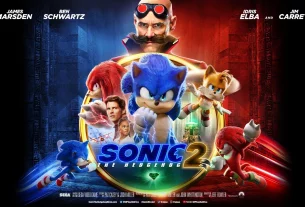140 million US dollars, this is Asian-themed’s “Shang-Chi and the Legend of the Ten Rings” (referred to as “Shang-Chi” in this article) in North America after its first weekend performance.
As a theater movie with a 45-day window, this project, which is defined as “Marvel’s New Avengers” in marketing terms, played extremely well during the Labor Day schedule in North America.
Sweeping away the industry’s haze, greatly boosting market confidence.
Undoubtedly, the existence of “Shang-Chi” is a phenomenon: Hollywood needs “multiculturalism” and “political correctness”, and the marginal characters in Marvel comics are brought out and changed.
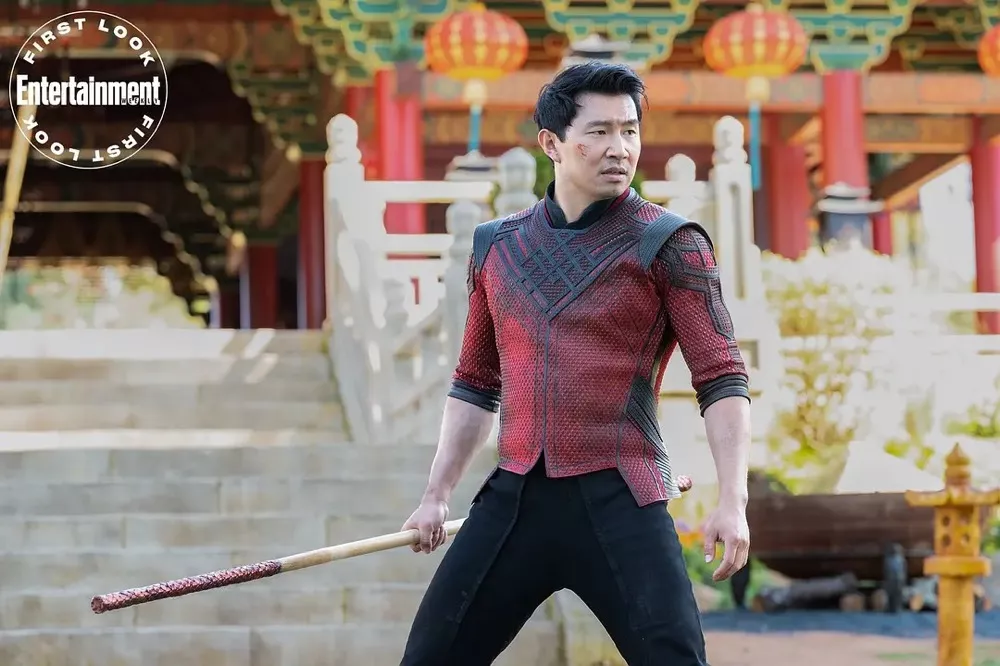
This not only shows the “political correctness”, but also shows that they “sincerely” want to sweep away the prejudices and stereotypes that have been placed on Asian groups in the past.
And if we broaden our eyes to Hollywood Asian-themed movies in recent years, it seems that we have also seen the trend of “blockbusterization”.
For example, “The Great Wall“, “Mulan“, “Snake Eyes” and “Shang-Chi” are all large-scale investment and large-scale productions.
Even if we count further, there are “Kung Fu giants” like “Enter The Dragon“, “The Forbidden Kingdom“, “The Mummy: Tomb of the Dragon Emperor” or “cultural misunderstandings” like “Memoirs of a Geisha“.
However, the emergence of “Shang-Chi” obviously took the development of Hollywood blockbuster Asian-themed films to a different trajectory.
At the same time, although there are also minority perspective transitions such as “Kubo and the Two Strings”,and “Turning Red” in animated films, or Chinese “special supply” co-productions such as “Abominable” and “Wish Dragon“.
However, because of the divergence between the audience and influence of animation and live-action movies, we will not include them in the discussion category of “blockbuster” first.
So, from the perspective of industrial ecology, will “Shang-Chi” become a watershed in Hollywood’s development of Asian-themed blockbusters?
Asian themes, small films become larger ones
We can always see Asian elements or symbols in Hollywood blockbusters. But at least in the last ten years, the level of treatment for related subjects has been on the edge.
Therefore, regardless of the quality, when Disney announced that it would shoot the live-action version of “Mulan” and Marvel announced that it would shoot “Shang-Chi”, public opinion was in an uproar.
Later, a series of operations such as the massive global audition, the joining of the anticipated superstars, and the struggling to enter the Chinese market made these Asian-themed projects embark on the standard path of “Hollywood blockbusters”.
However, what kind of Asian-themed film is a “small film”?
Similarly, what kind of configuration is considered a “blockbuster”?
When we are at different historical stages, the standard identification of Asian-themed “big movies” and “small movies” has been changing.
For example, in the early twentieth century, when Charlie Chan or Fu Manchu was in the early twentieth century when the “Oriental Wonders” were made, the continuous creation of sequels could support the title of “blockbuster”.
In the 1990s when “The Joy Luck Club” was created, the launch of the all-Asian lineup can be considered a “blockbuster” with cross-age significance.
And in the days when Jackie Chan, Jet Li, Gong Li, Zhang Ziyi and other Asian first-line superstars bravely rushed to Hollywood, high investment, real effort, big scene… all were “blockbuster” configurations.
But at the same time, the production cost of “The Joy Luck Club” is only 10.5 million US dollars, and the global box office revenue is only 32.9 million US dollars, which is a clear production volume of small films.
Similarly, in recent years, “Crazy Rich Asians“, which has been out of the circle, cost 30 million US dollars, and the cost of “The Farewell” is only 3 million US dollars.
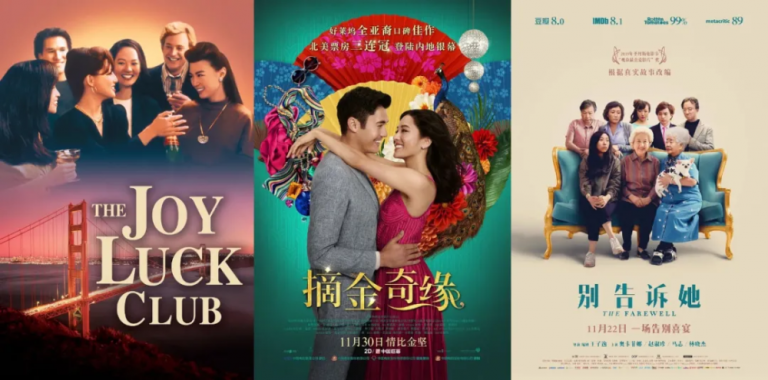
Therefore, when “Crazy Rich Asians” smashed the global box office of 238 million U.S. dollars, and “The Farewell“, which was spoken in Chinese almost 90% of the time, gained a global box office of 23.07 million U.S. dollars and excellent reputation, the current “Asian theme blockbuster” There are new standards.
First of all, regardless of the size of the production cost, as long as it can be labeled as “All Asian Lineup”, it has the potential for “blockbuster”.
“Crazy Rich Asians” and “The Farewell” have proved the feasibility of this, not to mention the propaganda caliber of “Mulan” “Shang-Chi” and other projects.
Secondly, the old standards or gimmicks about “blockbuster films” have of course been continued.
“The Great Wall” is a high investment, the sign of “G.I. Joe” has moved towards serialization, and their masterpiece is “Shang-Chi“.
However, the current situation between China and the United States is delicate, and it is difficult to say whether a co-produced film like “The Great Wall” will be produced in the future.
Therefore, the landing of “Shang-Chi” actually has a greater significance. It allows us to see the latest wealth ideas of Hollywood major manufacturers in developing Asian-themed blockbusters:
- First, there must be no fewer types of elements, kung fu, mythology, magical creatures, magic…all must be full;
- Second, the “series” must be developed, the “universe” must be developed, and IP revenue-generating channels must all be laid out.
Latest wealth ideas,Backdoor myth and create the universe
Have you discovered that Hollywood’s Asian-themed blockbusters for many years are always inseparable from the “shell” of China or Japan, and the “dragon” is indispensable for their creation.
For example, “The Mummy: Tomb of the Dragon Emperor” not only says “Tomb of the Dragon Emperor” in the subtitle, it also gives the villain emperor the power of a three-headed flying dragon in the film.
For another example, “Mulan“, a normal story of a battle in the north of ancient China, has the “Mushu” part added to the old version of the animation.
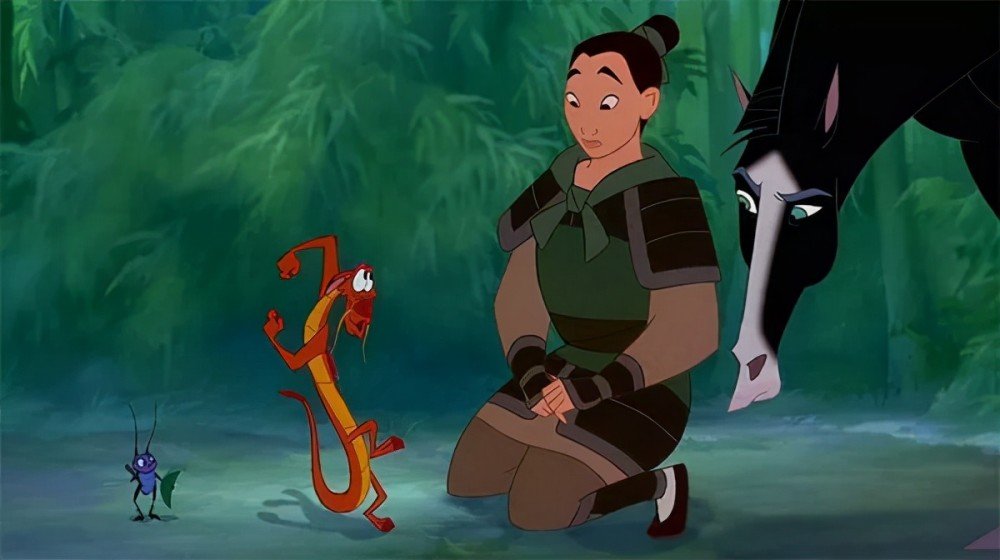
After it was adapted into a live-action version, it also had the setting of “Qi” abruptly, and the output form of “Qi” looked like a strange mixture of dragon and phoenix.
Obviously, as an Eastern cultural symbol that is most well-known and understood by Western audiences, we are not surprised by the use and misuse of “dragon” in Hollywood blockbusters.
While Western creators are not quite clear about the cultural differences between Asian countries, the image and function of “Dragon” in pan-Asian-themed blockbusters is even more “flexible.”
However, “Shang-Chi” brought something different to “Dragon”.
As a result, the “dragon” is no longer just a visual or functional monolithic element.
Starting from it, “Shang-Chi” relies more on the oriental mythological system than the previous Hollywood Asian-themed blockbusters.
According to the Hollywood Reporter THR comment, “Shang-Chi” part of the content is “Crouching Tiger“, part is “Pacific Rim“, part is “Dragon Ball“, it provides more than just the antiquities of Bruce Lee movies and Asian Kung Fu heroes Reprints, and surprising mythological creatures. I hope that the future works of “Shang-Chi” will continue to bring magic.”
Secondly, thanks to Disney/Marvel’s tried-and-tested revenue-generating model, mythical creatures headed by “Dragon” can bring refreshing peripheral products.
At present, the famous American toy manufacturer Hasbro has launched a number of “Shang-Chi” peripherals, and the dragon model is priced at US$20.99.

In addition, Lego has also developed two co-branded sets, each priced at US$29.99 and US$39.99.
Judging from the sales of e-commerce companies such as Amazon and Wal-Mart, these peripherals are quite popular.
However, the backdoor myth is not just to highlight the image of the “dragon” and sell new toys?
For Marvel, “Shang-Chi” is positioned as the core of the Marvel universe and its larger myth.
According to the Hollywood Reporter THR analysis, since 2019, the fourth stage of the Marvel Universe has been centering on the discovery of comics’ legacy and the establishment of a new “strongest hero on the surface”.
Therefore, Shang-Chi’s identity in the Marvel universe is not just the Kung Fu master depicted in the comics.
It’s the holder of the mysterious Ten Rings, a warrior from another space, and a new conqueror, just like Iron Man in 2008.
Therefore, we can see that the commercial layout Marvel planned for “Shang-Chi” not only has a single hero story like “Black Widow” and a strong addendum like “Eternals”, but also more More foreshadowing space.
Judging from the results, at least the North American audience is buying it-“Shang-Chi’s future adventure has quickly become one of the most anticipated projects in the Marvel Universe”, foreign media praised this.
Problems that cannot be avoided:How to deal with “Orientalism”?
Nevertheless, the introduction of “Shang-Chi” in mainland China is still in cloud.
Even if the film can be successfully introduced, under the influence of today’s public opinion environment, a new wave of rhetoric may strike in the future.
In the face of such a situation, in the final analysis, the issue of how to deal with “Orientalism” cannot be avoided.
As far as Hollywood is concerned, is the creation of Asian-themed blockbusters really progressing in the direction of getting rid of prejudice and objective description?
As far as the Chinese market is concerned, is it still possible to watch and scold and complain as before?
Time has changed, and some attitudes have changed, but some inertia seems hard to change.
However, from the perspective of industrial ecology, it has become a trend that Hollywood will invest more in the creation of Asian-themed blockbusters.
Even the goal of traditional big companies on such subjects is not to create a classic like “Crouching Tiger“.
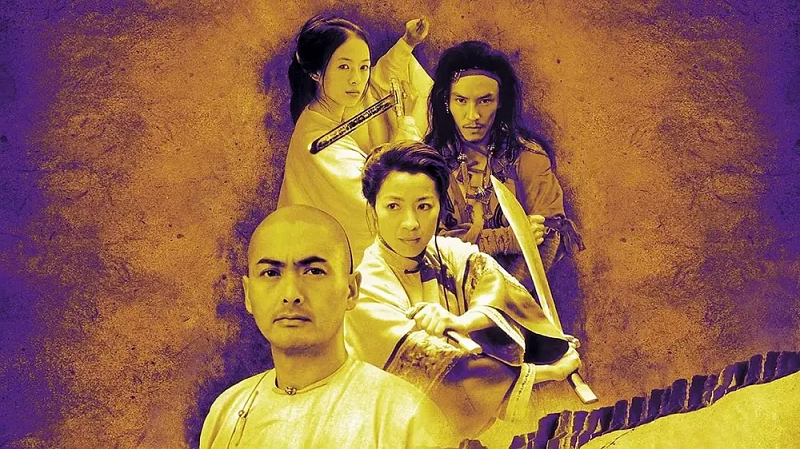
The reason is still closely related to the current trend of the game between major powers and the trend of the film industry.
First, Hollywood has become increasingly conservative, and risk control has become the only business logic of large companies.
Therefore, it is absolutely “politically correct” to create a minority theme.
And the creation of Asian-themed blockbusters that are popular in European and American templates can at least win good European and American box offices like “Crazy Rich Asians” and “Shang-Chi“.
Second, by grabbing the subject of ethnic minorities, traditional Hollywood manufacturers need to contend with the power of streaming media.
The streaming media giants led by Netflix need to master more resources and voice.
According to foreign media reports, “Shang-Chi” was actually first developed by Marvel as a Netflix project similar to “Iron Fist“, but later adjusted its development direction.
After Disney launched Disney+, Marvel’s online student project was naturally moved to Disney+.
The same strategy is also applied to streaming media.
Therefore, in recent years, we have not only been able to see many Chinese-language copyrighted movies and copyrighted dramas on Netflix, but Netflix itself has also created many Chinese-language drama series and movies.
For example, it bought the global distribution rights of “Double World” (directed by Teddy Chan, starring Henry Lau, Peter Ho, Luxia Jiang).
Another example is “Tigertail” (directed by Alan Yang) and “The Half of It” (directed by AliceWu) which he funded and created.
Although this type of Asian-themed online movie has a low ceiling at this stage, who knows that Netflix has no ambition to create the next “Crouching Tiger“?
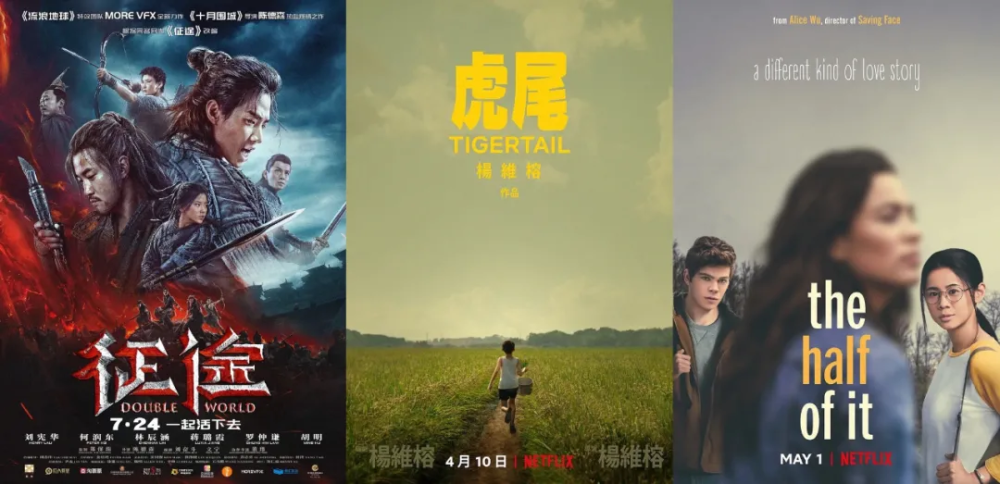
From this conclusion, through the backdoor myth and creation of the universe, the landing and revenue of “Shang-Chi” has brought new ideas for wealth to Hollywood Asian-themed blockbusters.
However, with the deep-rooted Orientalism and the rise of populism, we don’t know how many successful business cases will be after and beyond the headquarters of “Shang-Chi”.
At least, “Snake Eyes” created at the same time as “Shang-Chi” was defeated.
